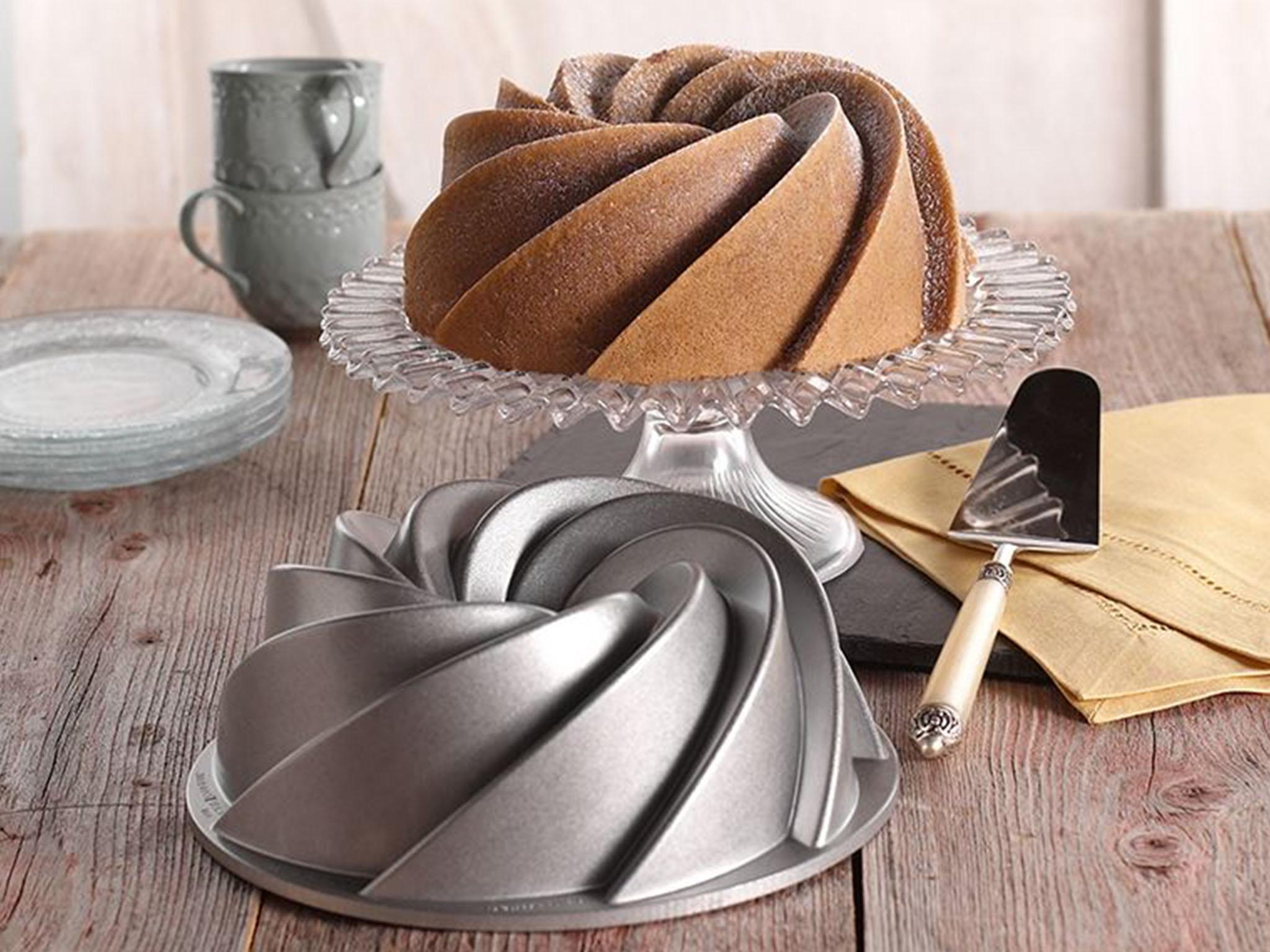Will silicone ever replace traditional metal tins in the baking world?
There’s a range of utensils on the market that boast of providing the perfect bake. Julia Platt Leonard sorts out the star bakers from the technically challenged

Tin, aluminium, anodised aluminium, and cast iron. Sometimes it feels like you need an advanced degree in metallurgy to choose a piece of bakeware. The choice is dizzying and each material has its strengths and weaknesses. So how do you figure out what’s right for you?
Sarit Packer, co-author of Honey & Co: The Baking Book says she uses different pans and tins based on what she’s baking. “I almost always bake financiers and chocolate cakes in silicone. It helps keep a moist rich texture. But I would never use a silicone tin to make a fruit or vegetable cake as they don’t create a great crust.”
Silicone is the new kid on the baking block. It’s super flexible which makes it easy to release food. It can also go from the freezer to the microwave or oven without any problems. You can also pop it in the dishwasher unlike most metal bakeware. So far so good. But remember that because it’s completely flexible, it’s usually best to place it on a separate, rigid baking tray to avoid spills.
Chetna Makan, author of The Cardamom Trail and past Great British Bake Off contestant isn’t a fan. “I don’t own any silicone bakeware as I am not convinced on how good they are. The only thing I use silicone for is chocolate making or moulding but actual baking it is always the real stuff.” For her that means tin, or aluminium bakeware which she says deliver consistently good results.
Tin is a material traditionally used in baking and the big plus is that it heats up quickly and is relatively inexpensive. Tala is a British brand that has been making tin bakeware for more than one hundred years. Today they still make a tin Swiss roll pan, a sandwich tin for classics like a Victoria sponge and a pie tin. Tin can wear and scratch so wash and dry carefully and avoid using metal utensils with them.
Tin bakeware isn’t as common to find today due to the rise of aluminium bakeware. Aluminium is an excellent heat conductor and also inexpensive. But many aluminium pans – including bakeware – are thin and flimsy so they can warp and buckle. Aluminium also doesn’t react well to acidic foods such as citrus and don’t put aluminium bakeware in the dishwasher – hand wash only.
A big step up from straight aluminium is anodised aluminium. Anodising is an electrochemical process that changes the surface of the metal, making it harder and more durable. A piece of anodised aluminium has the heat conductivity of aluminium with added strength. Silver anodised is even stronger and hard anodised is even sturdier still. Hard anodised bakeware has a heftier price tag but is the kind of bakeware you could enjoy for years.
Packer says, “When making and baking traditional Yemeni breads, I would always favour old fashioned aluminium tins like they did back then. But for general cake baking, I tend to use anodised tins from Silverwood.” And she’s recently added cast iron to her collection. “A new favourite is the Netherton Foundry cast iron loaf tin – they give a great crust.” She’s also keen on Nordic Ware bundt tins for special occasions.
If you’re looking for non-stick, then choosing a cheaper brand is definitely a false economy. Just like non-stick pots and pans, non-stick bakeware can easily scratch and you’ll find yourself replacing it more often. On the plus side, non-stick pans and bakeware don’t react to acidic foods, but Samantha Harvey, director of the Divertimenti Cookery School says they don’t always live up to their non-stick credentials.
“I am not overly keen on non-stick tins as I find them slightly unreliable so I always line my tins no matter what I am baking.” Harvey says baking is popular at Divertimenti’s cooking school but there is always an added bump in classes and bakeware sales during Great British Bake Off season.
“People are always very keen to learn about the specific techniques that are shown on GBBO. Specific skills that have stood out include croquembouche, caramel and sugar work, Viennese whirls and angel cake.”
For her own baking, Harvey goes for something sturdy and durable. “To be honest, I am not too fussy about my bakeware but I do always look for something that is nice and strong and thick. This seems to give a more even bake and also for the bigger cakes that are in the oven for a longer period, ensures they are not all singed around the outside.”
One thing she says she wouldn’t live without is an oven thermometer. “I think the most important thing is to know your oven and I highly recommend an internal oven thermometer as more often than not, the thermostat on an oven will be incorrect.” She has a trick when using an oven for the first time too. “I always cover an oven tray with slices of cheap white bread and then bake that and you will soon see where the hotspots of the oven are and know how much you will have to move your bake around whilst it is cooking.”
Subscribe to Independent Premium to bookmark this article
Want to bookmark your favourite articles and stories to read or reference later? Start your Independent Premium subscription today.

Join our commenting forum
Join thought-provoking conversations, follow other Independent readers and see their replies